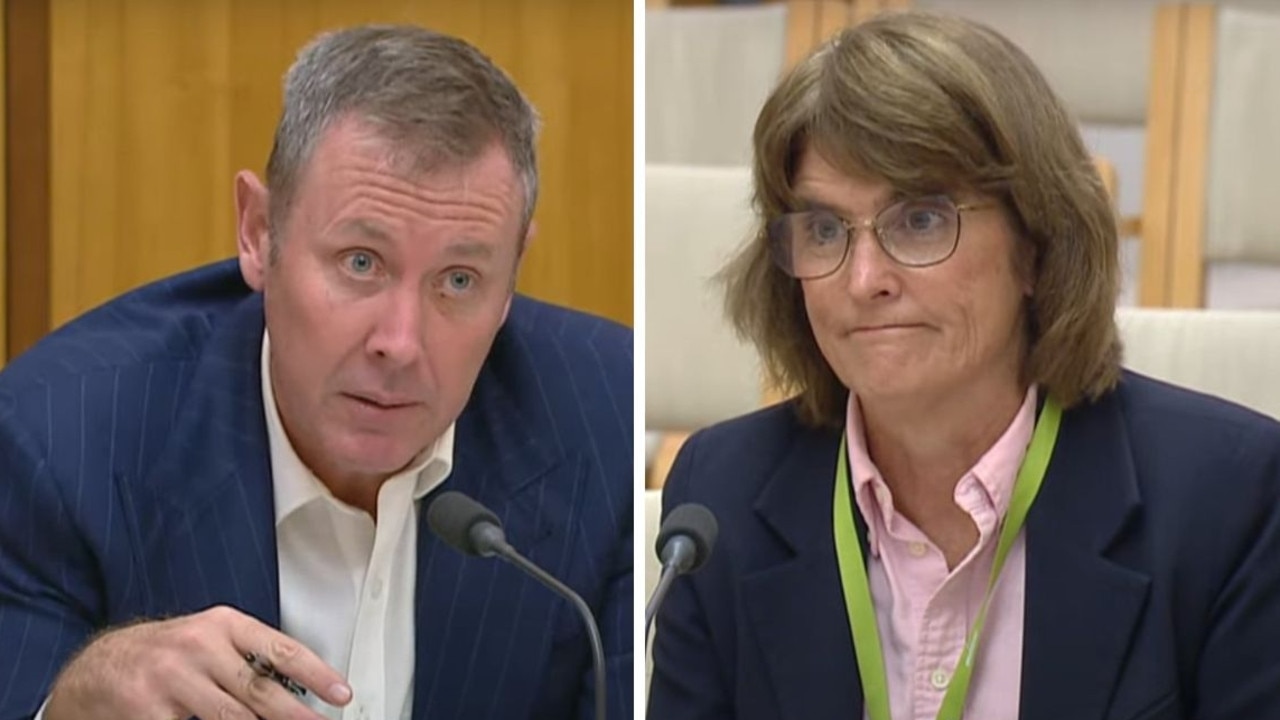Reserve Bank of Australia governor Michele Bullock questioned on future of cash by Groom MP Garth Hamilton during parliament committee hearings
The governor of the Reserve Bank has given a frank assessment on the future of cash in Australian society after a series of questions from a Queensland MP. Read the exchange here.
Toowoomba
Don't miss out on the headlines from Toowoomba. Followed categories will be added to My News.
Australia’s transition to a cashless society is “reasonably inevitable”, according to the head of the Reserve Bank, with the revelation coming after questions prompted by a regional Queensland MP.
RBA governor Michele Bullock said there was just a “10-year” horizon for cash across the nation as the costs of ensuring its storage and distribution by banks and lenders outweighed the size of the user base for physical currency.
The comments came during the Standing Committee on Economics’s questioning of the Reserve Bank’s leadership team at hearings in Canberra on Friday, which occurred just days after the institution cut the cash rate for the first time in years.
When asked by Groom MP Garth Hamilton about the ongoing talks between the banks and Armaguard around the future of cash distribution, Ms Bullock suggested she could see notes and coins in use for the next decade, but not necessarily beyond that.
“That’s the immediate short-term issue, but we have to think that cash is going to be around for another 10 years and we’ve got to find a way of moving to a new system that means that distribution of cash can be undertaken,” she said.
“There are a number of options that could get you there, but the bottom line is cash distribution is, if you don’t want the consumers to pay, then someone has to pay.”

Mr Hamilton, who later said he was taken by surprise at the shortness of the timeline, asked Ms Bullock whether there was any chance of a turnaround in cash among both consumers and merchants.
“You talked about a 10-year horizon and you’ve identified some of those cohorts who have held it strongly and would like to see a different response. What are the drivers and what’s going to change that conversation in the long-term?” he asked.
Ms Bullock said not only was the demand for cash on a near-permanent decline, but physical currency was actually becoming more costly to use for retailers than managing digital transactions.
“I know there are a lot of advocates for cash out there, but you only have to look overseas to see that it’s not making a rebound,” she said.
“What’s going to turn it around? I don’t think anything is going to turn it around and the reason being is people find making electronic payments just much more efficient.
“If you look at recent studies, there was a recent study done for MasterCard but it was a good study — the cost to merchants of cash is actually higher than card payments.
“It is costly for merchants, it’s costly in terms of all the back office costs of counting it, taking it to the bank, there are theft costs delightfully called shrinkage among merchants.
“For all of those reasons, the long term decline of cash is reasonably inevitable.”
Mr Hamilton also raised questions over the decline in physical banking and its impacts on small towns in regional Queensland.
“One of the biggest feedback I get from places like Pittsworth and Oakey (on the Darling Downs) where none of the majors exist anymore — we’re left with an ATM and we’re worried if that’s going to go,” he said.
“Are banks doing enough?”
Ms Bullock said much like the use of physical case, the number of Australians still regularly banking in-person was becoming smaller and creating commercial constraints for banks.
“The challenge is the banks are commercial institutions, they’ve got to work for their shareholders and so on, but we also expect them to meet some sort of community service obligations and cash is one of them, branch access is another,” she said.
“The difficulty with moving to a much more digital payment and banking system, is increasingly, the person-to-person element of that is getting smaller and smaller, and there’s a group of people who really want to use that but they are just becoming a smaller group.
“So there’s a real tension between effectively servicing them at a much higher cost than you’re servicing everyone else.
“There is a large portion of the population that have gone largely digital but there’s another portion and they are often the more vulnerable people and regional people – they’re the ones who are getting squeezed by this.”









